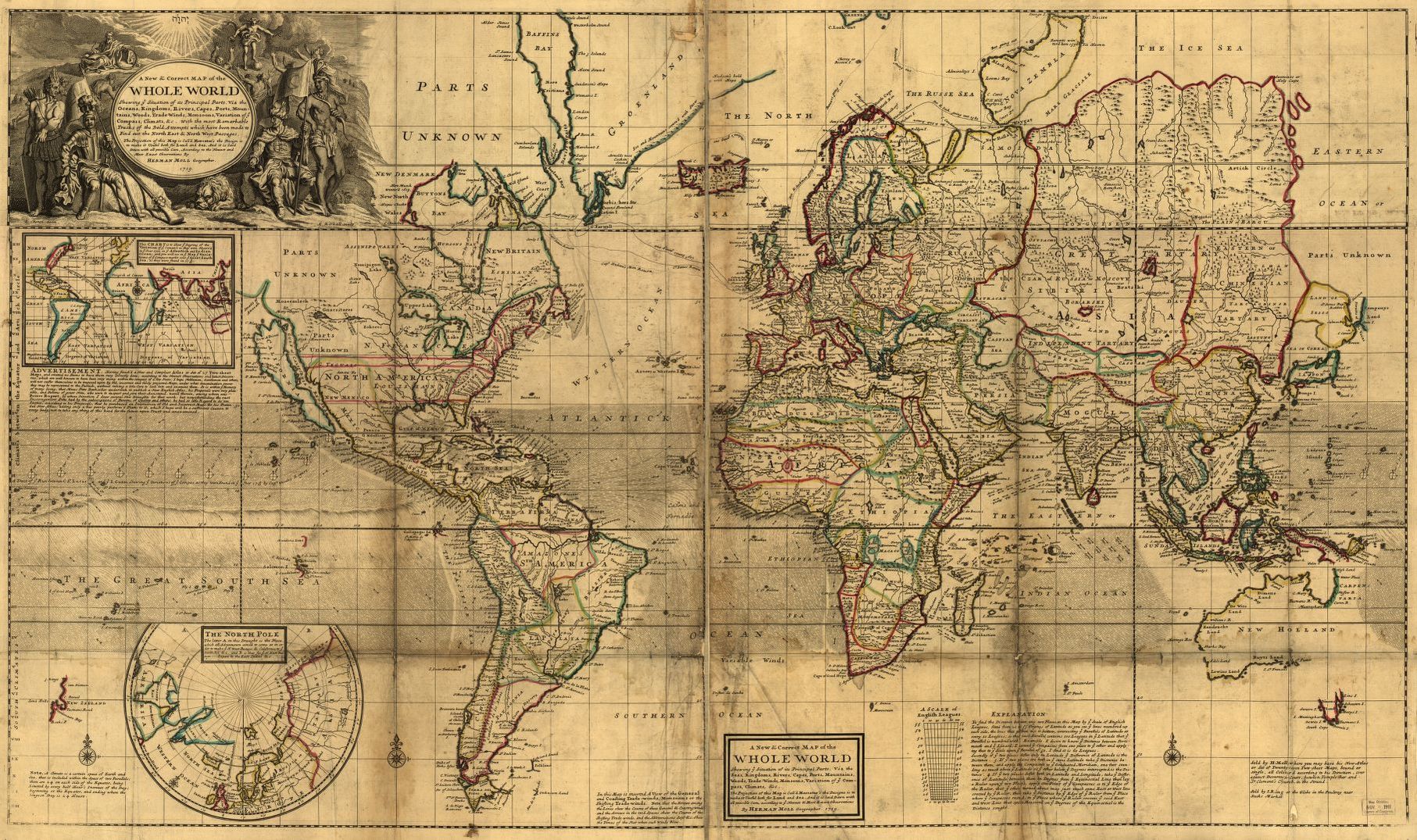
Herman Moll, A New & Correct Map of the Whole World (1719). Photo © Library of Congress, Geography and Map Division, Washington, D.C. https://www.loc.gov
As a political idea, Britain
has never coincided with the geographical entity bearing the same name. Instead, it has excluded many of the island's inhabitants while including some beyond its shores. This course studies how early literature constructs and questions notions of Britishness. Special attention is paid to Roman, Anglo-Saxon, and Norman conquests; conflicts among England, Wales, and Scotland; colonization of Ireland, India, and America; subordination of women, Jews, Africans, and indigenous peoples; and uncertainties about whether or which non-human creatures deserve political recognition. Readings commence with Beowulf (conscripted as the English national epic in the late eighteenth century) and conclude with Phillis Wheatley. Other featured authors include Marie de France, Chaucer, Spenser, Shakespeare, Katherine Philips, Aphra Behn, and Alexander Pope.